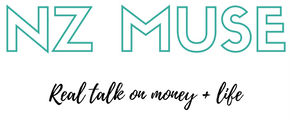There’s a special horror that comes with the territory of the violation of your personal spaces. If you’ve been burgled before, you know exactly what I mean. That crawly feeling; the knowledge that someone’s been inside your living room, kitchen, bedroom … looked around, touched your stuff, helped themselves to things.
It’s kind of like that when you learn that someone’s gained access to your online banking. It makes you realise how fragile the building blocks that enable your daily life are. Just like in The Handmaid’s Tale, when women were suddenly cut off from their bank accounts and could no longer access their own money.
As a sleep deprived parent, I barely registered the strange alert that a new device had signed into my internet banking. That notification came at a really odd time in the wee hours – but mornings are chaos at home, and this was over the New Year break, so honestly, the whole day was chaos.
When I realised what had happened and saw the missing money, I obviously freaked out.
My online banking got hacked.
Initially, the person on the other end of the phone at the bank sounded sceptical. Despite me explaining that yes, I used a unique password and no, it wasn’t written down anywhere or saved in any browsers; no, I hadn’t clicked on any links in emails and always type in the URL manually – it took quite a while for her to take me seriously. Frustrating.
Fast forward a few days, and things got straightened out eventually. My cards and accounts were locked down and my online banking had a freeze put on it while I took my laptop to an IT dude for a checkup. My bank couldn’t recover the money from the receiving bank (presumably it was immediately transferred elsewhere), but I was refunded the lost amount.
Does this make me super paranoid now? Ummm, yeah. Funnily enough, last year I interviewed for a job in the cybersecurity space. At the time, I talked about how it was a growing field that would be exciting to be part of, yadda yadda. (Here are some pretty terrifying stats on cybercrime – the FBI gets 900 complaints a day, and cybercrime costs the world economy nearly $3 million per minute. The mind boggles.) It didn’t really mean much to me personally, though.
But an incident like this makes it real and brings it home. This stuff matters.
Change ALL THE PASSWORDS
For obvious reasons.
Turn on two-factor authentication
I didn’t actually realise my bank now has 2FA enabled for desktop banking.
Keep some money accessible at another bank
Luckily I already had this in place, though I’m resisting the kneejerk urge to spread my (limited) money around even more.







Recent Comments